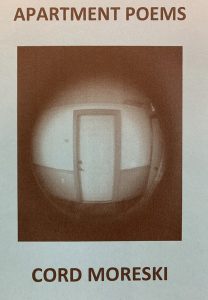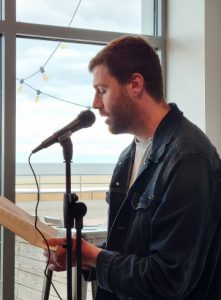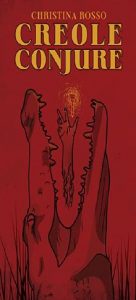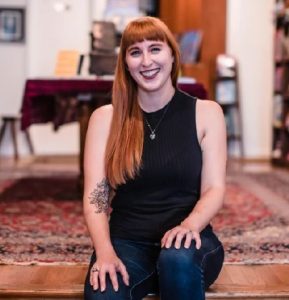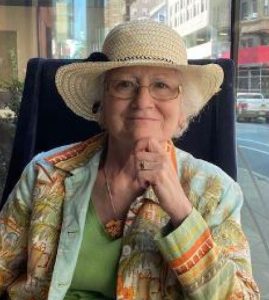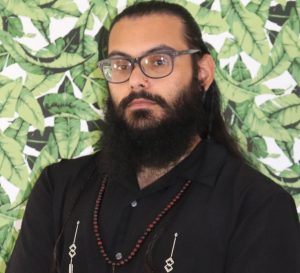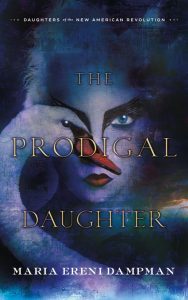
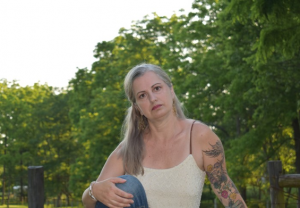
Maria Ereni Dampman lost count of how many newspapers, magazines, websites and blogs she has written for over the years.A graduate of West Chester University of Pennsylvania with a B.A. in Communication Studies and Journalism, she’s also an award-winning speechwriter and orator with examples of her winning works featured in collegiate textbooks for the past two decades. One of Maria’s greatest passions is social justice and equality for all. She’s a staunch crusader of a woman’s right to autonomy over her own body, a supporter of the Black Lives Matter movement, the LGBTQIA+ community, and a vocal proponent of nationwide election reform.
Review of Maria Ereni Dampman, The Prodigal Daughter
by Stephen Brown
Opening on the aftermath of an explosive terrorist attack, the second installment of Maria Ereni Dampman’s Daughters of the New American Revolution, The Prodigal Daughter, is a story of highly privileged family drama and political intrigue set on a dystopian stage. Dampman’s main character, Emma Bellamy, might at first be mistaken for a “quaking, terrified, grief-stricken girl” but she soon transforms into the pregnant action hero I never knew I needed, while squaring off with the pussy-grabbing “Purity Police,” an aptly named paramilitary force controlled by, you guessed it, her own father. The secretly-multi-ethnic de facto leader of the white supremacist government that has replaced our own, Edward Bellamy, is as contemptible as any comic-book supervillain. If Emma has her way, she’ll be the one to put a bullet between his eyes. Succeeding isn’t without its own complications, of course. The only person more powerful than Edward is the government’s near-comatose Supreme Archon to whom Emma is engaged against her will. Emma can count on one hand the people who know that she’s already married and that the father of her baby is miles away. If the Supreme Archon regains his ability to do anything other than make occasional furious eye contact, that number may grow!
Emma’s actual husband is casted as a hunky healer and all-around
damsel-in-distress. “Lithe,” “athletic,” and not so unlike “those ancient Greek statues of young warriors,.” Declan seems to have such a tough time keeping his clothes on and nobody’s complaining. We get it, tying your scrubs can be tricky! Unwilling to risk the last remaining East Coast oil refinery to civil unrest, the Supreme Archon commissioned a wall erected around the adjacent city. The inhabitants were presented with the option of surrendering or starving within. They chose neither. Declan embarks on a harrowing recovery period under the authority of Brother Love, the hulking leader of the Broad Street Bullies and the devout practitioner of a patient, forgiving, and now-outlawed form of Christianity. That isn’t to say Declan is welcomed with open arms. As far as the BSB is concerned, if you don’t have the accent, they don’t trust ya!
Dampman’s characters spend a significant amount of time separated and relatively clueless about one another’s activity, a storytelling choice that is more validating than fatiguing. Viewing the novel as a broad commentary on current events, this feels like an homage to our years spent in various forms of social isolation. Much like our own world during the quarantine era, Dampman’s is ruled by the cumulative, individual efforts of her characters.
While Dampman takes care in navigating post-traumatic stress from the nuanced perspectives of former military combatants and the male survivors of sexual assault, her most tragic portrayals are those of the queer and interracial partnerships that find themselves invalidated under the rules of this new regime. Perhaps the most heartbreaking of these is the story of Dr. John Andrews and his wife, Marta, both of whom suffer unimaginable losses yet somehow persevere through the sheer might of their adoration for one another. Their commitment to each other and their community is a triumph that brought a tear to my eye.
For Dampman’s queer characters specifically, the need for secrecy is sometimes so severe that even those closest to Emma share romantic histories she knows nothing about. I tend to read storylines of this nature with a heightened level of scrutiny and to
her credit, Dampman doesn’t disappoint. Her queer characters feel complex and thought out. Their personal motivations define them well beyond their sexual identities or their proximity to her straight characters. Without knowing how Dampman personally identifies, it’s possible she accomplishes something I rarely see from straight writers — that being, the joy of her queer characters is as represented in their storylines as their oppression. The Prodigal Daughter counterbalances the abject suffering of life under fascism with dark humor, friendship, and… a whole lot of Philadelphians doing exactly what Philadelphians would do.

Stephen Brown is a Philadelphia-based writer, editor, and LGBT+ activist. A graduate student at Rosemont College, Stephen holds a BA in English Literature and Gender Studies from Temple University. His work has appeared in the Women’s, Queer, Trans, and NB Anthology from Querencia Press, Wicked Gay Ways arts journal, and others.
